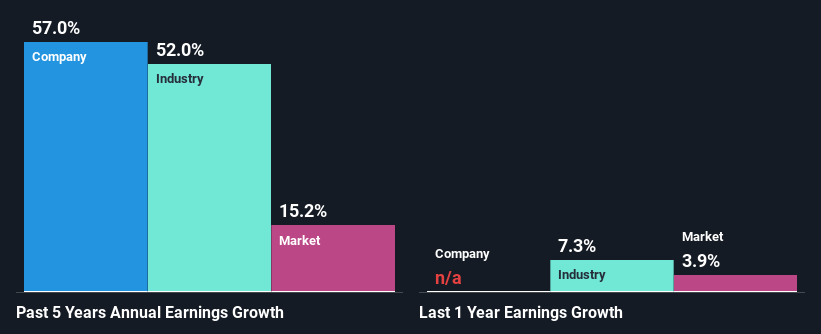General Electric Company's (NYSE:GE) Stock Been Rising: Are Strong Financials Guiding The Market?
Most readers would already know that General Electric's (NYSE:GE) stock increased by 9.0% over the past three months. Since the market usually pay for a company’s long-term financial health, we decided to study the company’s fundamentals to see if they could be influencing the market. Specifically, we decided to study General Electric's ROE in this article.
Return on equity or ROE is a key measure used to assess how efficiently a company's management is utilizing the company's capital. Simply put, it is used to assess the profitability of a company in relation to its equity capital.
View our latest analysis for General Electric
How Do You Calculate Return On Equity?
The formula for return on equity is:
Return on Equity = Net Profit (from continuing operations) ÷ Shareholders' Equity
So, based on the above formula, the ROE for General Electric is:
33% = US$11b ÷ US$32b (Based on the trailing twelve months to June 2023).
The 'return' is the yearly profit. Another way to think of that is that for every $1 worth of equity, the company was able to earn $0.33 in profit.
What Has ROE Got To Do With Earnings Growth?
Thus far, we have learned that ROE measures how efficiently a company is generating its profits. We now need to evaluate how much profit the company reinvests or "retains" for future growth which then gives us an idea about the growth potential of the company. Assuming all else is equal, companies that have both a higher return on equity and higher profit retention are usually the ones that have a higher growth rate when compared to companies that don't have the same features.
General Electric's Earnings Growth And 33% ROE
Firstly, we acknowledge that General Electric has a significantly high ROE. Additionally, the company's ROE is higher compared to the industry average of 21% which is quite remarkable. Under the circumstances, General Electric's considerable five year net income growth of 57% was to be expected.
We then performed a comparison between General Electric's net income growth with the industry, which revealed that the company's growth is similar to the average industry growth of 52% in the same 5-year period.
Earnings growth is an important metric to consider when valuing a stock. The investor should try to establish if the expected growth or decline in earnings, whichever the case may be, is priced in. This then helps them determine if the stock is placed for a bright or bleak future. What is GE worth today? The intrinsic value infographic in our free research report helps visualize whether GE is currently mispriced by the market.
Is General Electric Making Efficient Use Of Its Profits?
General Electric's three-year median payout ratio to shareholders is 4.4%, which is quite low. This implies that the company is retaining 96% of its profits. So it seems like the management is reinvesting profits heavily to grow its business and this reflects in its earnings growth number.
Moreover, General Electric is determined to keep sharing its profits with shareholders which we infer from its long history of paying a dividend for at least ten years. Upon studying the latest analysts' consensus data, we found that the company's future payout ratio is expected to rise to 6.5% over the next three years. Therefore, the expected rise in the payout ratio explains why the company's ROE is expected to decline to 16% over the same period.
Summary
In total, we are pretty happy with General Electric's performance. Particularly, we like that the company is reinvesting heavily into its business, and at a high rate of return. Unsurprisingly, this has led to an impressive earnings growth. That being so, according to the latest industry analyst forecasts, the company's earnings are expected to shrink in the future. To know more about the company's future earnings growth forecasts take a look at this free report on analyst forecasts for the company to find out more.
Have feedback on this article? Concerned about the content? Get in touch with us directly. Alternatively, email editorial-team (at) simplywallst.com.
This article by Simply Wall St is general in nature. We provide commentary based on historical data and analyst forecasts only using an unbiased methodology and our articles are not intended to be financial advice. It does not constitute a recommendation to buy or sell any stock, and does not take account of your objectives, or your financial situation. We aim to bring you long-term focused analysis driven by fundamental data. Note that our analysis may not factor in the latest price-sensitive company announcements or qualitative material. Simply Wall St has no position in any stocks mentioned.



